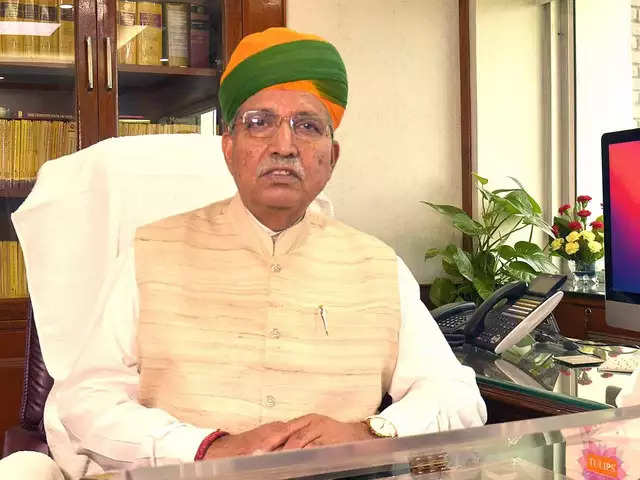
NEW DELHI: As part of the National eGovernance Plan, the eCourts Mission Mode Project is under implementation for Information and Communication Technology (ICT) development of the Indian judiciary based on the “National Policy and Action Plan for Implementation of Information and Communication Technology in the Indian Judiciary”, according to the information furnished by the Minister of State (Independent Charge) for Law & Justice, Arjun Ram Meghwal in a written reply in Rajya Sabha on Thursday.
eCourts project is being implemented by Department of Justice in collaboration with eCommittee Supreme Court of India. Phase I of the eCourts project was implemented between 2011-2015. Phase II of the project extended from 2015-2023. In eCourts Mission Mode Project, during Phase I of the project video conferencing facility has been operationalised between 488 court complexes and 342 corresponding jails, the minister said.
In eCourts Phase II of the project, one video conference equipment each has been provided to all Court Complexes, including taluk level courts and funds have been sanctioned for additional VC equipment for 14,443 court rooms (High Court-wise details attached at Annexure I). Funds for setting up 2,506 VC cabins have been made available (High Court-wise details of VC cabins attached at Annexure II). VC facilities are already enabled between 3,240 court complexes and corresponding 1,272 jails.
eCourts Phase III with a budgetary outlay of ₹7,210 crore was approved by Union Cabinet in September 2023 for a period of four years (2023 onwards) to upgrade digital infrastructure of the lower judiciary. Focus of Phase III is on building a robust governance framework and a judicial system that is more accessible, efficient, and equitable for every individual who seeks justice or is part of the delivery of justice in India.
Under this phase, there is a provision for enhancing and upgrading the available infrastructure of video conferencing in 10,200 establishments, including 500 jails, 700 district government hospitals and 9,000 courts at an amount of ₹228.48 crore, he added.


